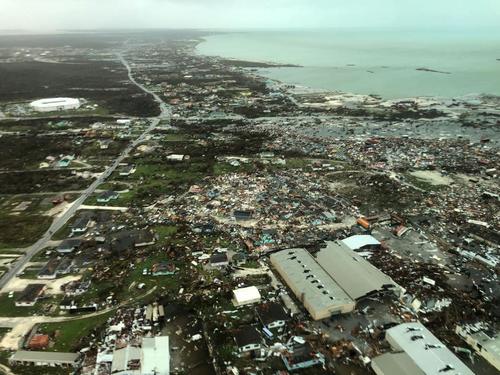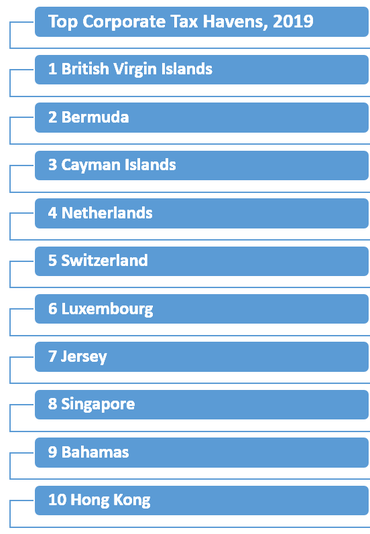Bahamas Defends Dorian Response
Bahamas Defends Dorian Response
 Read the article from BBC News about the disaster in the Bahamas after Hurricane Dorian.
Read the article from BBC News about the disaster in the Bahamas after Hurricane Dorian.
Climate Change
Read about research suggesting that climate change is intensifying storms.
Tax Evasion
Investopedia explains, “The Commonwealth of the Bahamas owes its tax haven status to its tax- and business-friendly laws for foreign investors. This is because citizens of the Bahamas and resident aliens pay no taxes on personal income, inheritance, gifts, or capital gains.”
A May article from the Tribune, based in the Bahamas, points out that the country assists only a small share of multinational companies and describes recent steps to bring tax policies into global compliance.
Read the Corporate Tax Haven Index for 2019.
The Tax Justice Network describes the many challenges:
“First, the colossal scale at which the jurisdictions have enabled corporate tax avoidance risks to woo multinational corporations has made countries’ statutory corporate tax rates meaningless. Second, the jurisdictions have triggered a ‘race to the bottom’ across the globe that will further deplete tax revenues as countries desperate to claw back foreign investment engage in the false economy of ‘tax competitiveness’ and increase their complicity in corporate tax havenry.”

The problem: “In rich and poor countries, multinational corporations rely on a wide range of public services to support their activities: the health and education systems that underpin their workforces and their intellectual property; the roads and other infrastructure that they use to ship their goods and services; or the public courts and police forces that protect their property and their rights. All these things need to be paid for — largely through raising tax. When multinationals use corporate tax havens to escape paying their contributions to these public goods and services, they are free-riding off the taxes paid by other people…”
The network explains how tax avoidance undermines support for democracy and free markets, generates enormous inequalities, helps large businesses destroy small competitors, smothers innovation, destabilizes economies, exacerbating recessions and reducing economic growth.
The Tax Justice Network warns that countries do not benefit from being tax havens: GDP and GDP per capita in this countries are artificially iinflated by profits while GDP per income is typically lower. Inequality runs high and, also, “jurisdictions attracting large inflows of profit-shifting activity also suffer a ‘finance curse’ which goes far beyond national wealth and income statistics and affects every dimension of people’s lives.”
International Aid
“The clock is ticking” for Hurricane Dorian survivors in the Bahamas to receive humanitarian assistance, reports the United Nations.
Immigration
Miami New Times reports: “Haitian activists in Miami are calling on the Bahamian government to suspend all immigration enforcement actions until the battered islands and their undocumented residents have had a chance to recover from the devastation caused by Hurricane Dorian. Today the Little Haiti-based Family Action Network Movement (FANM), formerly known as the Haitian Women of Miami, and more than 20 other groups released a letter addressed to Bahamian Prime Minister Hubert Minnis and other government official.”